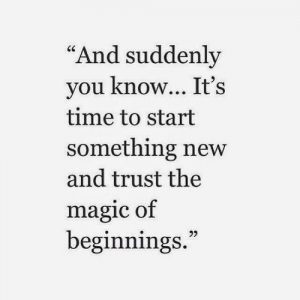
“aExperts” have been telling us for years that there are certain all-encompassing principles that will get you through the bad times and make your business a success.
Well, just like you and unlike many of these experts, I’ve actually gotten my hands in the soil and started a few successful businesses, and I can tell you from long-term experience that many of those truisms are just outright wrong.
Here are a few:
1. Use The Power Of Positive Thinking
The Rev. Norman Vincent Peale took the country by storm in the 1950s with this idea that everything could be solved with optimism.
Many business experts and entrepreneurs all seem to have similar mantras: “I always stay positive!” “No matter what, I always see the glass half full.” “The birds are always chirping and the sun is always shining.”
It seems everything in their business is always perfect. They have absorbed the whole notion of the power of positive thinking — but they are getting it all wrong. If you want your business to succeed, don’t just be positive. Deal with reality.
Bad news doesn’t get better with age. If something is wrong, and I pretend that everything is great and do nothing about it, things will only get worse.
But the pundits insist that if only I believed everything was always rosy, I won’t ever have to face things getting worse. All those problems will somehow resolve themselves, as long as I remain upbeat and flick away bad news or rumblings of discontent.
Of course we should be positive — when it’s warranted — but not at the cost of hiding from hard truths that will only grow larger if ignored. If your sales have increased but your customer service department makes mistakes, are you on a path to success?
If your business is growing but your employees are unhappy and have low morale, are you going to be in business much longer? Staying positive all the time but ignoring the underlying cracks in your foundation is a recipe for failure.
2. The Newest Idea Is The Most Original
No one has an original idea. Not Steve Jobs, not Thomas Edison, not Mark Zuckerberg. Nobody. We get ideas from what we see, what we hear, and what we read. I read the NY Times cover to cover every day, then I turn around and read the Wall Street Journal. I read articles that friends send me in emails, and newsletters, and books, as many and as often as I can.
But most of all, I talk to people. Every successful idea I ever had — on the football field, in business, in my personal relationships — happened because I talked to people. I talk to people every day, from every business, every age, every walk of life, because that’s how I learn and that’s how I get better.
When I played football, I talked to coaches, I talked to my teammates. I talked to anyone who could tell me anything I didn’t know, or could put a new spin on something I thought I already knew, but really didn’t.
In business, the greatest ideas didn’t come from a bunch of MBAs sitting around a conference table. Innovation came from Home Depot’s Bernie Marcus talking to the customer in the parking lot about why he bought lumber, but no nails. It was because Home Depot’s nails weren’t very good! And nobody knew it—not the department buyer, not the manager, not the salespeople on the floor — until Bernie simply talked to people in the parking lot.
All ideas grow from other ideas, but you can only get to them if you put yourself out there and engage yourself.
3. The Mission Of Business Is To Create Profit
If you ask most business leaders what tools they use to drive their team, many will say financial incentive is high on the list.
Many think that bonuses, commissions, or prizes will incentivize people to work harder or think faster. Business owners think that if they just make enough profit, either for themselves if they’re a small business or for shareholders if they’re larger, then they’d be labeled a “success.”
But profit isn’t and shouldn’t be the mission of business. The mission of business is to help people. To help your customers, your co-workers, your employees, and your partners. Success is not a number — it’s not X dollars or Y customers — it’s a measurement of VALUE.
Have you brought value to your customers and the people who surround you? If you can answer, “yes,” to that question, then the inevitable by-product will almost certainly be profit. Value is your mission, but once you offer it, then the profit will always come.
I start every day with a single drive — the drive to help people. Obsessing over my customers and the quality of my product is what keeps me going.
So I wake up every morning with a sense of desperation. How can I make my customers happy? How can I increase our value to them? Am I making my employees happy and challenged and energized? Those questions fuel my every waking moment, and they keep me from getting complacent or making careless mistakes.
I have a positive attitude because I’m doing positive things. I come up with better ideas because I’m always reading and listening and learning about other people’s great ideas. And I’m creating profit and increasing sales because I’m trying to help people.
I’ve always stayed focused on my customers and my associates, and I assure you that doing that has made me a passionate, enthusiastic, and more productive person, and so will you.
This article originally appeared at BusinessInsider.com.
(296)
Report Post


